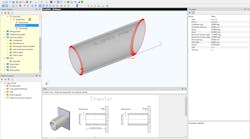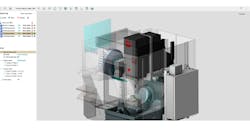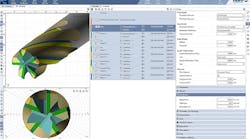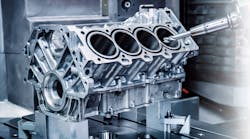In this uncertain economy, reliable industrial analysts suggest that manufacturers “stabilize” their respective businesses, protecting them from excessive risk and ensuring that the enterprise has the liquidity necessary to weather the crisis.
The entire operation must integrate and align with finance to understand the implications of risk, allowing manufacturers to do what they do best – deliver quality products at competitive prices.
Software manufacturer Plex Systems has identified several key areas to creating value and profitability through real-time monitoring of financial conditions.
Importance of Integration
A manufacturing enterprise benefits from fully integrated, real-time financial tracking, analysis and reporting of accounts receivable, customer credit management, receipts and other activities. It’s a strong disadvantage if the organization uses stand-alone spreadsheet systems to track purchasing, receiving, shipping, accounts payable, collections and other areas.
With stand-alone and manually intensive systems, the challenges include tedious tracking and maintenance of physical documents like invoices, lack of visibility into financial recordkeeping such as tracking payables and receivables, and a high likelihood of introducing error via duplicate data-entry.
Keeping an Eye on Margins
While price cutting helps a manufacturer compete and maintain volumes, as a company lowers prices, profit margins suffer, endangering overall sustainability and financial health. In the end, manufacturers using multiple systems (or manually intensive systems) have no confidence in their data – even in the most basic of information, the cost to produce a product.
Keeping an eye on profit margins has everything to do with maintaining accurate costing and bidding data. It’s a significant reason that automation and integration, such as enterprise resource planning (ERP), is so valuable.
Cash Flow Considerations
Automated financial systems also contribute to an improved cash flow situation.
As an example, many companies improve cash flow by paying only for raw materials or parts as they are consumed, instead of paying for them in advance of production, then assuming costs of storage.
This is accomplished by automated supplier consignment tracking when invoices are generated only when the parts are consumed by the manufacturer.
Compliance
For public companies, no discussion about manufacturing financials is complete without mentioning the importance of complying with regulatory regulations such as Sarbanes-Oxley.
Manufacturers must implement financial processes and controls for maintaining auditable business transactions and transparency. Manufacturing management must have complete confidence in financial systems and in the accuracy of related reports.
Focus on Financials
Plex Online software for manufacturing offers integrated financial reporting, analysis and management capabilities. It manages business operations across a plant, a division, or a global manufacturing enterprise with multi-lingual and multi-currency support.
ERP comes down to improving business decisions and increased profitability. With greater knowledge, comes a greater chance to succeed, something every company needs in this turbulent economy.





